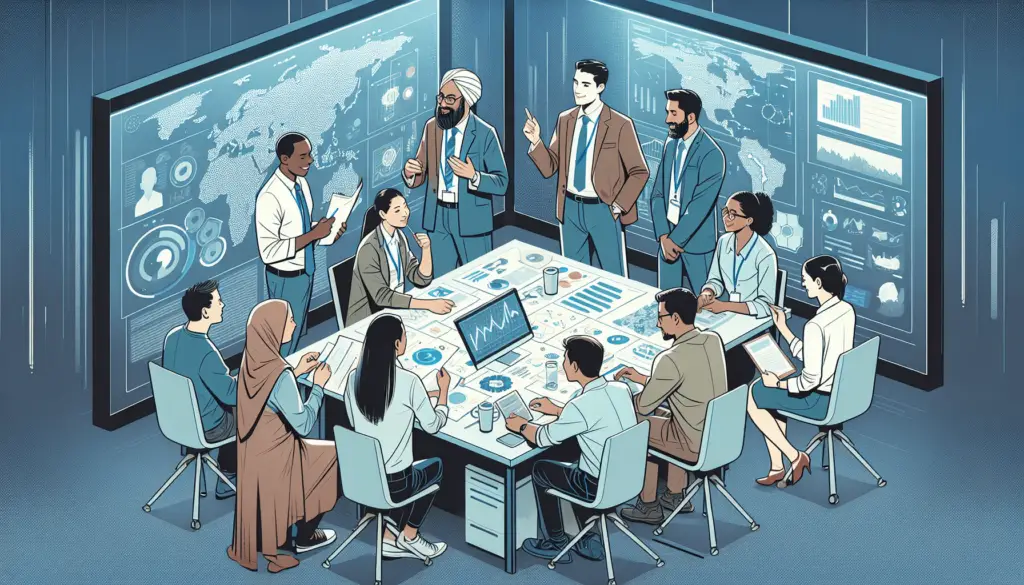Are you concerned about the looming threat of a global water crisis? It’s imperative to educate yourself on strategies and solutions to prepare for the challenges ahead. Let’s explore some key information together to help you navigate this critical issue.
Understanding the Global Water Crisis
The global water crisis is a complex phenomenon that arises from a combination of factors including population growth, climate change, pollution, and mismanagement of water resources. As the demand for freshwater continues to rise, it is essential to understand the gravity of the situation and the urgency to take action.
Impact on Communities
Communities around the world are already experiencing the detrimental effects of water scarcity. From lack of access to clean drinking water to disrupted agricultural practices, the global water crisis is posing a threat to public health, food security, and overall well-being. It’s crucial to address these challenges proactively to mitigate their impact on vulnerable populations.
Causes of the Crisis
The root causes of the global water crisis are multifaceted. Rapid urbanization, industrialization, deforestation, and inefficient agricultural practices are all contributing to the depletion of freshwater sources. Moreover, climate change is exacerbating the situation by altering precipitation patterns and increasing the frequency of droughts and floods. Understanding these underlying causes is essential to developing effective strategies for sustainable water management.
Strategies for Mitigation
Addressing the global water crisis requires a comprehensive approach that involves a combination of strategies aimed at conservation, efficiency, and innovation. By adopting these strategies, we can work towards securing a sustainable water future for generations to come.
Water Conservation
Water conservation is a key component of mitigating the global water crisis. By reducing water waste at the individual, community, and industrial levels, we can alleviate pressure on freshwater sources and ensure their long-term viability. Simple actions such as fixing leaks, using water-efficient appliances, and practicing responsible irrigation can make a significant difference in preserving this precious resource.
Efficient Water Management
Efficient water management is crucial for optimizing the allocation and distribution of water resources. Implementing smart technology solutions, such as water monitoring systems and leak detection tools, can help identify areas of inefficiency and optimize water usage. By prioritizing sustainable water practices, we can ensure that water is used wisely and equitably for all.
Infrastructure Upgrades
Investing in water infrastructure upgrades is essential for enhancing the resilience of water systems in the face of the global water crisis. By repairing aging pipelines, expanding water treatment facilities, and implementing decentralized water management solutions, we can improve the reliability and quality of water services. These investments are critical for ensuring that communities have access to safe and reliable water supplies.

Solutions for Sustainable Water Use
In addition to mitigation strategies, it is vital to focus on long-term solutions for promoting sustainable water use and conservation. By incorporating innovative technologies, policies, and practices, we can create a more resilient water ecosystem that benefits both people and the environment.
Rainwater Harvesting
Rainwater harvesting is a sustainable practice that involves collecting and storing rainwater for various uses such as irrigation, household chores, and groundwater replenishment. By capturing rainwater runoff, we can reduce reliance on traditional water sources and conserve freshwater for critical needs. Rainwater harvesting systems can be implemented at the household, community, or industrial scale to maximize water savings and promote self-sufficiency.
Desalination Technology
Desalination technology offers a promising solution for addressing water scarcity in regions with limited freshwater resources. By removing salt and impurities from seawater or brackish water, desalination plants can produce clean, potable water for consumption and agriculture. While desalination can be energy-intensive and costly, advancements in technology are making the process more efficient and affordable. Investing in desalination infrastructure can provide a reliable source of water for coastal communities facing water shortages.
Water Recycling and Reuse
Water recycling and reuse are effective strategies for maximizing the use of wastewater and minimizing water wastage. By treating and repurposing wastewater for non-potable applications such as irrigation, industrial processes, and groundwater recharge, we can conserve freshwater resources and reduce pollution. Implementing water recycling systems in urban areas, industrial facilities, and agricultural operations can help alleviate the strain on water supplies and promote sustainable water use practices.
Collaborative Initiatives for Change
Addressing the global water crisis requires a collective effort involving governments, businesses, communities, and individuals. Collaborative initiatives that prioritize water conservation, efficiency, and equity can pave the way for a more sustainable water future for all.
Public-Private Partnerships
Public-private partnerships are instrumental in driving innovation and investment in water management solutions. By bringing together the expertise and resources of government agencies, private companies, and non-profit organizations, we can accelerate progress towards sustainable water goals. Collaborative initiatives such as joint research projects, infrastructure development, and policy advocacy can leverage the strengths of each sector to address the challenges of the global water crisis effectively.
Community Engagement
Engaging local communities in water conservation efforts is crucial for building awareness, promoting behavior change, and fostering a sense of shared responsibility. By organizing educational programs, community clean-up events, and water-saving campaigns, we can empower individuals to take action and make a positive impact on water sustainability. Encouraging community participation in decision-making processes and water management initiatives can enhance resilience and promote equitable access to water resources.
International Cooperation
International cooperation is essential for addressing transboundary water issues and promoting global water security. By fostering dialogue, sharing best practices, and coordinating efforts across borders, countries can work together to manage shared water resources sustainably. Multilateral agreements, diplomatic negotiations, and international partnerships play a critical role in resolving conflicts, preventing water-related disasters, and ensuring equitable access to water for all.

Taking Action Now
As you continue to learn about the global water crisis and explore potential strategies and solutions, remember that every action counts in making a difference. By advocating for sustainable water practices, supporting conservation initiatives, and participating in collaborative efforts, you can contribute to a more resilient and water-secure world. Let’s work together towards preparing for a global water crisis through proactive measures and positive change. Your commitment to water sustainability matters – start making a difference today!
